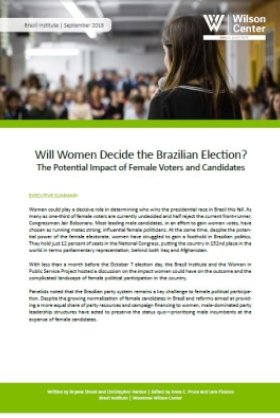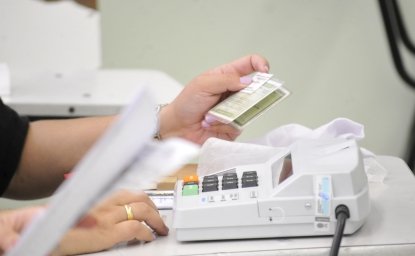Event Summary: Will Women Decide the 2018 Brazilian Election? The Potential Impact of Female Voters and Candidates


Women could play a decisive role in determining who wins the presidential race in Brazil this fall. As many as one-third of female voters are currently undecided and half reject the current front-runner, Congressman Jair Bolsonaro. Most leading male candidates, in an effort to gain women votes, have chosen as running mates strong, influential female politicians. At the same time, despite the potential power of the female electorate, women have struggled to gain a foothold in Brazilian politics. They hold just 12 percent of seats in the National Congress, putting the country in 152nd place in the world in terms parliamentary representation, behind both Iraq and Afghanistan.
With less than a month before the October 7 election day, the Brazil Institute and the Women in Public Service Project hosted a discussion on the impact women could have on the outcome and the complicated landscape of female political participation in the country.
Panelists noted that the Brazilian party system remains a key challenge to female political participation. Despite the growing normalization of female candidates in Brazil and reforms aimed at providing a more equal share of party resources and campaign financing to women, male-dominated party leadership structures have acted to preserve the status quo—prioritizing male incumbents at the expense of female candidates.
Watch the event video here, or download the summary report above.
Author

Brazil Institute
The Brazil Institute—the only country-specific policy institution focused on Brazil in Washington—aims to deepen understanding of Brazil’s complex landscape and strengthen relations between Brazilian and US institutions across all sectors. Read more

Explore More
Browse Insights & Analysis
Greenland’s New Governing Coalition Signals Consensus



